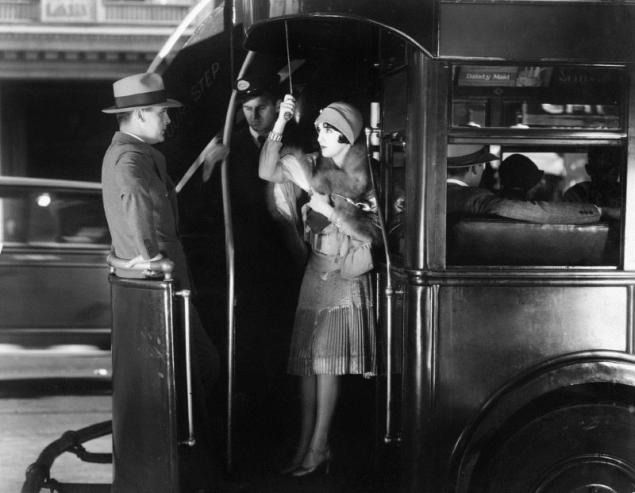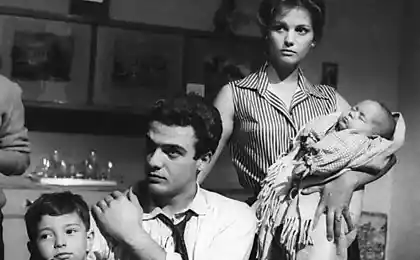163
What people seem to be educated
Academician Dmitry Likhachev is rightly called the conscience of the nation. An outstanding researcher and publicist wrote a book called “Letters on the Good and Beautiful”, which he addressed to the younger generation. The book became popular not only at home but also abroad. The book is designed in the form of letters, in it the writer talks about the meaning of life, upbringing, education and much more.

Good manners Education is not only decent behavior and compliance with the rules of etiquette. First of all, respect for other people, without exception. Dmitry Likhachev wrote that a truly educated person behaves with dignity both in society and with relatives. Otherwise, it is hypocrisy, and only that.
Today we will share one of the most touching sections of the instructive book “Letters on the Good and Beautiful”, in which Dmitry Sergeyevich reflects on the upbringing of a person.

You can get a good upbringing not only in your family or in school, but also in yourself.
I am convinced, for example, that true upbringing manifests itself primarily at home, in my family, in relations with my relatives.

“If a man on the street lets a stranger in front of him (even on the bus!) and even opens the door to her, and at home does not help a tired wife to wash the dishes, he is an ill-mannered person.”

“If he is polite with his acquaintances and irritated with his family about everything, he is an ill-mannered person. If he does not take into account the character, psychology, habits and desires of his loved ones, he is an unbred person.”
“If he takes the help of his parents for granted as an adult and does not notice that they themselves already need help, he is an unbred person.”

“If he turns on the radio and TV loudly, or just talks loudly when someone is at home preparing homework or reading (even if it’s his little children), he’s an ill-mannered person and will never bring his children up.”

“A well-educated person is one who wants and knows how to reckon with others; he is one to whom his own politeness is not only familiar and easy, but also pleasant. This is the one who is equally polite with older and younger years and position.
A well-bred person in all respects does not behave loudly, saves the time of others (“Accuracy is the courtesy of kings,” says the saying), strictly fulfills promises made to others, does not matter, does not raise his nose and is always the same: at home, at school, at college, at work, in the store and on the bus.”

Dmitry Likhachev appeals first of all to the man - the head of the family, as he is convinced that it is the man who sets an example to his wife and his children, how to behave correctly. Raising good manners The first rule for young parents, otherwise, where do these manners come from?
When harmony and understanding reign in the family, a person is happy and shares positive emotions with others. Such a person will never snap back on public transport and will be polite even to strangers.

Rules of etiquette and good manners They can make an ignorant gentleman, even if they were not taught this as children, it is never too late to correct oneself. It is important to remember that we are the blacksmiths of our happiness, if there is something wrong in the family or there is a feeling of inferiority at work, you need to ask yourself the question: “What can I do to improve the situation?” Responsibility for one’s actions should not be placed on the shoulders of others.
Education is not just about following the rules of etiquette. This is their full acceptance, a kind of thinking, confirmed by noble deeds, but not vice versa.

Good manners Education is not only decent behavior and compliance with the rules of etiquette. First of all, respect for other people, without exception. Dmitry Likhachev wrote that a truly educated person behaves with dignity both in society and with relatives. Otherwise, it is hypocrisy, and only that.
Today we will share one of the most touching sections of the instructive book “Letters on the Good and Beautiful”, in which Dmitry Sergeyevich reflects on the upbringing of a person.

You can get a good upbringing not only in your family or in school, but also in yourself.
I am convinced, for example, that true upbringing manifests itself primarily at home, in my family, in relations with my relatives.

“If a man on the street lets a stranger in front of him (even on the bus!) and even opens the door to her, and at home does not help a tired wife to wash the dishes, he is an ill-mannered person.”

“If he is polite with his acquaintances and irritated with his family about everything, he is an ill-mannered person. If he does not take into account the character, psychology, habits and desires of his loved ones, he is an unbred person.”
“If he takes the help of his parents for granted as an adult and does not notice that they themselves already need help, he is an unbred person.”

“If he turns on the radio and TV loudly, or just talks loudly when someone is at home preparing homework or reading (even if it’s his little children), he’s an ill-mannered person and will never bring his children up.”

“A well-educated person is one who wants and knows how to reckon with others; he is one to whom his own politeness is not only familiar and easy, but also pleasant. This is the one who is equally polite with older and younger years and position.
A well-bred person in all respects does not behave loudly, saves the time of others (“Accuracy is the courtesy of kings,” says the saying), strictly fulfills promises made to others, does not matter, does not raise his nose and is always the same: at home, at school, at college, at work, in the store and on the bus.”

Dmitry Likhachev appeals first of all to the man - the head of the family, as he is convinced that it is the man who sets an example to his wife and his children, how to behave correctly. Raising good manners The first rule for young parents, otherwise, where do these manners come from?
When harmony and understanding reign in the family, a person is happy and shares positive emotions with others. Such a person will never snap back on public transport and will be polite even to strangers.

Rules of etiquette and good manners They can make an ignorant gentleman, even if they were not taught this as children, it is never too late to correct oneself. It is important to remember that we are the blacksmiths of our happiness, if there is something wrong in the family or there is a feeling of inferiority at work, you need to ask yourself the question: “What can I do to improve the situation?” Responsibility for one’s actions should not be placed on the shoulders of others.
Education is not just about following the rules of etiquette. This is their full acceptance, a kind of thinking, confirmed by noble deeds, but not vice versa.























